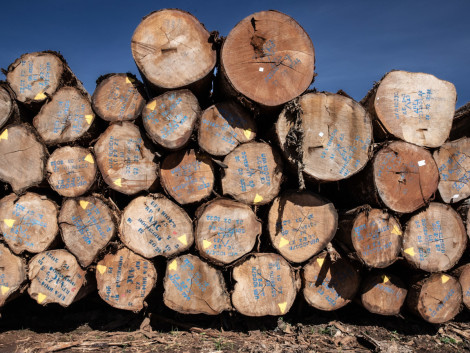

News | 03.02.2023
Françoise van de Ven, ATIBT president, participated on January 27 in a symposium on the ENFORCE project, funded by the Belgian federal government.

The ENFORCE project consists of developing a center of expertise attached to the Royal Museum for Central Africa (AfricaMuseum, in Tervuren, Belgium) to carry out forensic analyses on wood. The objective is to fight against illegal trade.
The ATIBT will now follow this project closely, as Françoise van de Ven is part of the follow-up committee. Our interaction with this type of action is fundamental in view of the current context: between the evolutions of the CITES regulation and the draft Regulation against Imported Deforestation of the European Union, the traceability of wood to fight against illegal trade is a crucial issue.
The universities of Ghent and Liege, as well as the Botanical Garden of Meise and the Royal Botanic Garden, are partners in the project. This team has a laboratory that allows it to carry out analyses, mainly for the private sector, customs, courts and NGOs.
The project team presented the three methods commonly used in a forensic context:
The Thünen Center of Competence on the origin of timber, with its ten years of experience in forensic timber analysis, shared the lessons learned from the Global Timber Tracking Network, which includes the establishment of a platform to store results, trends and statistics. The first case study conducted within the framework of the ENFORCE project in the DRC also showed that the names given to the species collected do not always correspond to reality; the final results are still awaited.
The last discussions focused on the practical aspects of the implementation of the ENFORCE project: analysis capacity, cost of the analyses to ensure the sustainability of the project, timeframe of the analyses, and details to be provided to the sponsors.
The website of the project is under construction. It is currently only available in Flemish, and will soon be translated into French and English.
tag(s) :